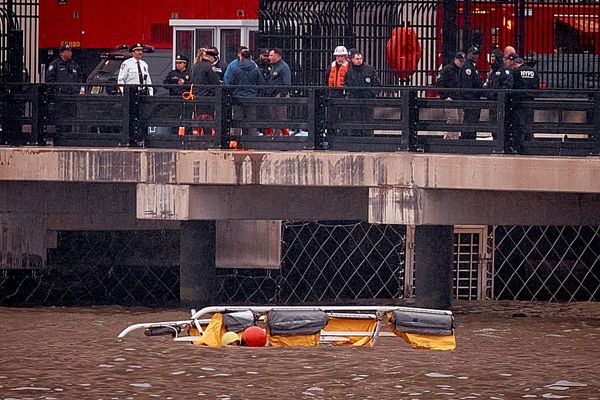
The conviction of a former Irish soldier for membership of the so-called Islamic State (IS), because she travelled to Syria in 2015, “falls short of Irish law”, a Dublin court has heard.
Lisa Smith, 43, from Dundalk in Co Louth, is appealing against her conviction for membership of the IS terror group at the Court of Appeal.
The former Defence Forces member was found guilty of IS membership in 2022, but was cleared of financing terrorism, after a nine-week trial at Dublin’s non-jury Special Criminal Court.
Smith, a convert to Islam, went to Syria in 2015 after terrorist leader Abu Bakr al-Baghdadi called on Muslims to travel there.
She had pleaded not guilty to charges of membership of IS and providing funds to benefit the group.
Smith was sentenced to 15 months in prison and lost an appeal against the severity of the sentence in 2023.
Opening the case at the Court of Appeal on Thursday, her barrister Michael O’Higgins SC said there was no “smoking gun or burning match” that Smith did anything for IS while she lived in Syria.
He said it was not possible to join a terrorist organisation by “osmosis” and said she had led a “totally anonymous” life as a housewife during her time there, where she was subjected to serious assaults by her former husband.
Continuing his submissions on Friday, Mr O’Higgins compared Smith’s IS membership conviction with the way membership of the IRA and of organised crime gangs is defined.
He said it was “a flawed approach” to conclude someone was an IS member because they travelled to an area where Sharia law is applied.
“To put women in jail for cooking and cleaning for their husband, and believing what their husband believes in, is not a legal basis for convicting a person of serious offences,” he said.
He said that none of the women in communities in Northern Ireland who “submitted to the jurisdiction of paramilitaries” and benefited from the “stamping out” of antisocial behaviour in their area would be deemed IRA members.
“This passive business of living in the house and living among them falls way short of participating in the group,” Mr O’Higgins said.
“Not always but invariably the conduct that is at the heart of an IRA membership (case), does involve moving weapons, it’s crime involved, it’s hiring houses for the purpose of furthering some IRA operation down the line.
“All involve acts that are overtly criminal or lawful acts with the purposes of obtaining a criminal result,” he said, such as renting a car to be used in a getaway.
Mr Justice John Edwards said that Smith went to an IS-controlled part of Syria “desiring to submit to their jurisdiction and live under their regime, is that not enough?”
Mr O’Higgins replied that it was not and the argument “falls short of Irish law”.
He said there are several steps to joining an organisation, such as wanting to join it, the organisation accepting you, and then joining it.
He said if you bring that argument to its logical conclusion, what does it mean for organised criminal gangs that operate in communities, sometimes linked to local boxing clubs.
“At what point do members of the community become involved in a criminal gang?” he said.
“There must be strict criteria, there must be moral culpability, there must be legal culpability.”
He said there was no evidence that Smith made bay’ah, a ceremony in which a person swears an oath to the caliph, not IS, nor evidence she received special treatment or benefits.
He added: “Even if you were some type of Hollywood celebrity walking around wearing the outer normality of the regime as a badge of honour, if you weren’t doing it as a part of membership duties, if you did that all day every day, it could never make you a member, especially if the life you led there was completely and utterly anonymous.”
He said the UK had criminalised travel to parts of Syria, and while an EU directive had been prepared to criminalise travel, that legislation has not been enacted “in any way shape or form” in Ireland, meaning that Smith’s travel was lawful.







